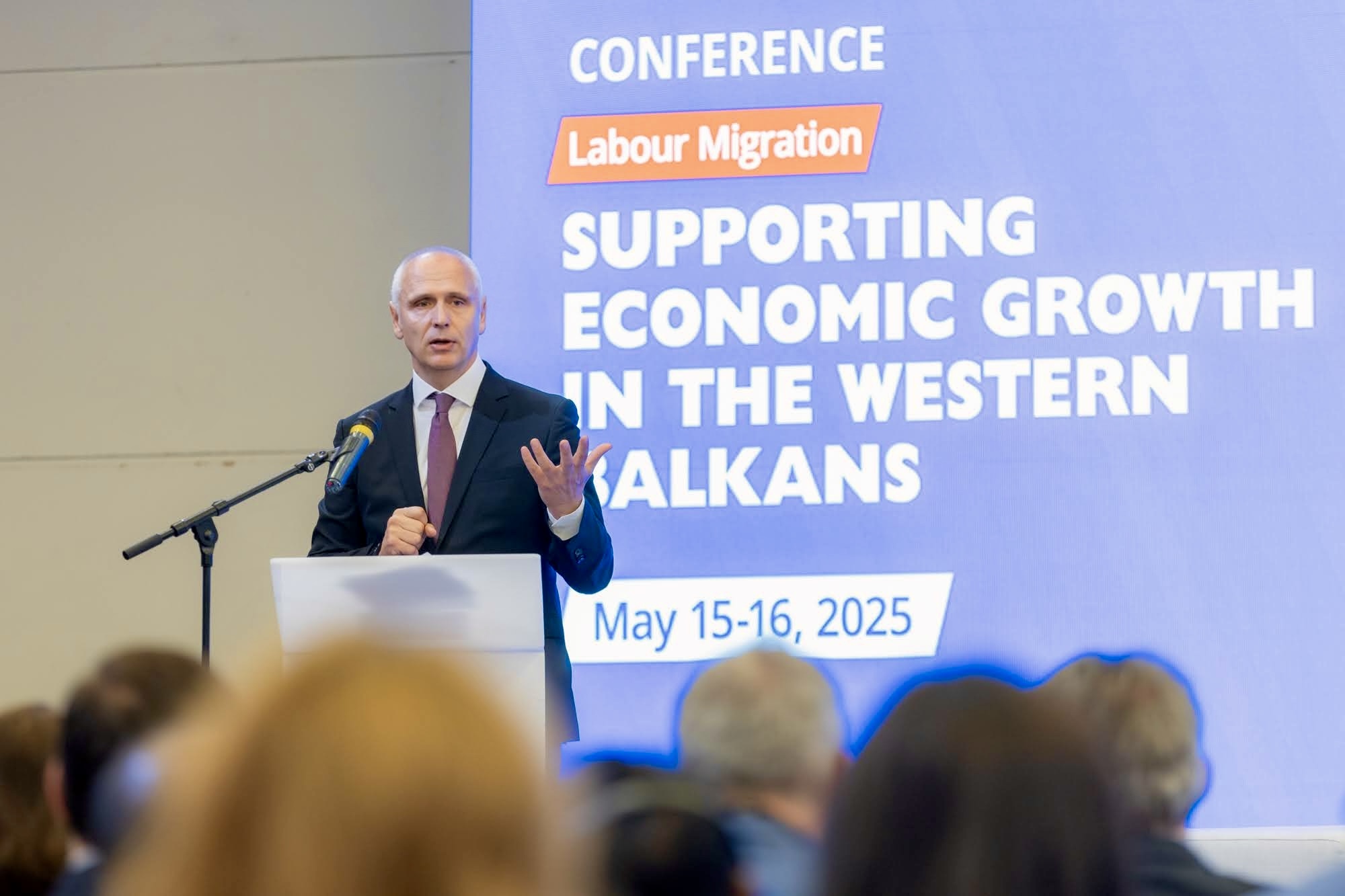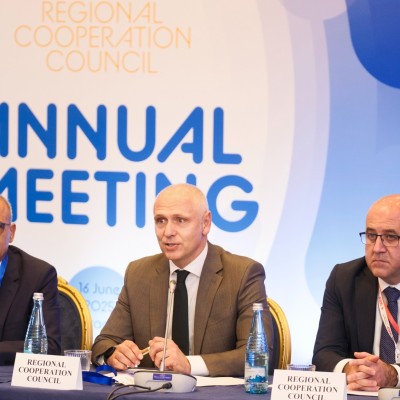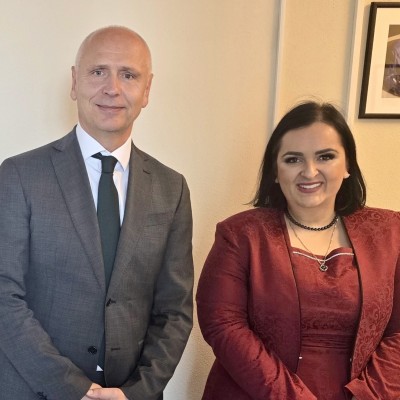High-Level Conference on labour migrations in the Western Balkans takes place in Budva Western Balkan Representatives endorse Joint Statement on Labour Migration Policies
15 May 2025

RCC Secretary General Amer Kapetanovic opened High-Level Conference on labour migrations in the Western Balkans takes place in Budva on 15 May 2025 (Photo: RCC/Danilo Papic)
Budva – Ministers and high-level representatives from the Western Balkans endorsed a Joint Statement on labour migration policies at the Conference dubbed “Labour Migration: Supporting Economic Growth in the Western Balkans”, in Budva today. The event is being hosted by the Ministry of Labour, Employment and Social Dialogue of Montenegro and the Regional Cooperation Council (RCC), in collaboration with the International Organization for Migration (IOM), the International Labour Organization (ILO), and the European Union Delegation in Montenegro.
The Joint Statement sets a common agenda to enhance regional policy coordination, promote ethical recruitment, and develop inclusive, data-driven labour migration systems that respect migrants’ rights and strengthen integration services. These efforts aim to foster resilient labour markets, reduce skills mismatches, and improve migration governance aligned with EU standards.
In his opening remarks, Amer Kapetanović, RCC Secretary General, emphasised the need for immediate and coordinated regional solutions. “Labour migration is no longer something we can plan for tomorrow, it is already reshaping our societies today. In just five years, the number of work permits issued to foreign workers in the Western Balkans has more than doubled, from 46,000 in 2018 to over 100,000 in 2023. At the same time, employers across the region are struggling to fill vacancies, while our own citizens remain in demand abroad. This dual reality calls for smart, inclusive, and human-centred policies. At RCC, we believe migration done right can bridge skills gaps, energise our economies, and restore dignity to work. That’s why we are investing in regional frameworks that align with EU standards, protect workers’ rights, and give people, whether they were born here or just arrived, a fair chance to build a life,” said Kapetanović.
In his opening remarks, Deputy Prime Minister for Foreign and European Affairs of Montenegro, Filip Ivanović addressed the participants and highlighted that labour mobility and migration have recently become key public policy challenges for the region.
Opening remarks were also delivered by Arthur Erken, IOM’s Regional Director for Europe and Central Asia, who affirmed IOM’s support to regional labour migration efforts; Beate Andrees, ILO’s Assistant Director-General, who highlighted the need for well-functioning labour markets that protect rights and foster cohesion; and Olivier Onidi, Deputy Director General at the European Commission’s Directorate General for Migration and Home Affairs, and Stefan Olsson, Deputy Director General at the European Commission’s Directorate General for Employment, Socia Affairs and Inclusionwho underlined the EU’s support to the Western Balkans in advancing labour mobility agreements to address shortages.
This two-day conference brings together ministers and other government high-level officials, policymakers, international partners, and experts to address one of the region’s most pressing issues: how to harness labour migration as a driver of economic growth, regional cooperation, and EU integration.
The conference agenda includes discussions on aligning national migration policies with regional frameworks such as the EU Growth Plan, the Common Regional Market, and the Skopje Declaration on Sustainable Migration Governance. Participants will also explore how to promote ethical recruitment, support migrant integration, and strengthen data-driven governance.
As Western Balkan economies face growing labour shortages, especially in construction, digital, agriculture, tourism, and health sectors, participants at the conference are highlighting the role of international recruitment and the need to treat migrants as economic contributors in a changing demographic landscape.
This conference marks a critical step forward in building resilient, inclusive, and EU-aligned labour migration systems in the Western Balkans, reflecting a shared vision that migration, if well-managed, can become a catalyst for growth, stability, and sustainable development.



